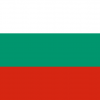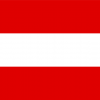Latvia - Digital Decade strategic Roadmap 2030
The Digital Decade strategic Roadmap for Latvia 2030 developed by the Ministry of Smart Administration and Regional Development sets out the general digital objectives and digital targets to be achieved by 2030, monitoring their achievement and also the development of multi-country projects.
The report uses the data in the Digital Decade Report 2023 on the National Base Value of the Digital Decade Targets, the EU baseline value for Digital Decade Targets in 2023 and the EU target value for 2030. According to the 2023 Digital Decade Latvia report, the indicator for both digital skills at least at basic level and digital skills is only slightly below the EU average. 51% of the population aged 16-74 have at least basic digital skills and 24 % have digital skills above basic levels compared to the corresponding EU average of 54% and 26%. Latvia, where 64% of the population has at least basic skills to create digital content, is close to the EU average of 66%.
The Roadmap for Latvia consists of 16 chapters:
- At least basic digital skills
- ICT specialists
- Gigabit connectivity and 5G coverage
- Semiconductors
- Edge nodes
- Quantum computing
- Cloud computing
- Big data
- Artificial intelligence
- Small and medium-sized enterprises with at least a basic level of digital intensity
- Unicorns
- Online provision of key public services for citizens
- Online provision of key public services for businesses
- Access to the e-health card
- Access to electronic identification
Priorities for the development of digital skills
In order to achieve the Digital Decade targets, the development of digital skills issued by Latvia in 2021 has been identified as a national priority. The development of basic digital skills has been identified as one of the Digital Transformation Guidelines 2021-2027 policy objectives to enable the continuous and personalised learning of digital skills for everyday life, employment, including work in ICT specialties and increasing the number of women employed therein, for business, science and research, in order to move towards a society that supports its well-being in the effective use of digital technology and in creative development.
Investments under the RRF plan play a key role in supporting at least the acquisition of basic digital skills for citizens aged 16-74, such as a pilot project on individual learning accounts and an initiative to provide basic digital skills for at least 50000 people. These investments are expected to contribute to the national target of 70% of the population having acquired at least basic digital skills by 2027.
Measures contributing to the achievement of the target:
- Measure 1: ESF SAM 8.4.1 Project “Improvement of Professional Competence of Employed Persons”
- Measure 2: ESF and ESF Plus SAM.4.2.4.2. “Support for adult learning based on the individual needs of adults”
- Measure 3: Investment of the RRF Plan 2.3.1.4. “Developing the approach to individual learning accounts”
- Measure 4: Investment of the RRF Plan 2.3.2.1 “Development of society’s digital skills”
- Measure 5: “National Coordination Centre – Latvia” (NCC-LV) DEP co-financed project
Strategy Details
Latvia’s RRF plan, includes measures wholly or partly related to digital skills, will address the digital skills gap in most age groups, social and working environments. The total budgetary allocation of EUR 106.0 million, representing 6% of the RRF plan funding, is expected to focus on improving the digital skills of students and adults, achieving the digital transformation of society and the labour market, including public administration, and mitigating the risks of social exclusion.
The Roadmap for Latvia has been developed by the Ministry of Smart Administration and Regional Development in cooperation with other ministries – the Ministry of Economics, the Ministry of Education and Science, the Ministry of Transport, the Ministry of Health, the Ministry of Defence, including social partners and non-governmental organisations.






